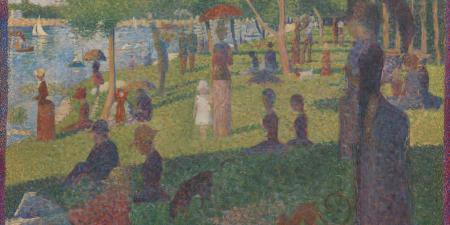The way your patient is dying is taking everyone down with her. Doctors, nurses, friends, and family are all at each other's throats about whether to keep her alive. "How can you make her suffer any more?" "Why do you want her to die?"
She'd even filled out an Advance Directive to avoid just such a horror show. Somehow, they never make things clear. She checked the box that said, "Do not keep me alive if . . . I'm terminal, in permanent coma, if it will only delay death, or if the burden outweighs the benefit." But we're all terminal. How imminently terminal was she talking about? Medical care can only delay death. And burden, benefit— who knows what she would consider too much burden to achieve a given outcome?
At the end of a day of doing your very best, you go home feeling wounded and powerless. Wouldn't it have been better if you'd learned to drive a truck?
Our first thoughts of mortality usually begin with an illness. It's likely death will find us in a hospital. With few exceptions, it will feel like a defeat of everything we'd hoped to achieve. We hear about "good deaths" with Hospice, or on programs like Bill Moyer's PBS series, "On Our Own Terms." What goes wrong in hospitals that we so seldom experience this fabled "good death"?
Years of clinical work and ethics consultation have convinced me that we make such a mess of the end of life because we focus on procedures rather than on goals and needs. We prolong life, but ignore life's purpose. Family and friends may spend three months at their loved one's bedside while we scurry around, do things, explain situations, make decisions. We ask for consents; we write orders. At the last moment we ask, "Should we go on?" or "What do you want us to do?" Then we write a "DNR" and hurry from the room to get busy with more salvageable patients.
What would happen if we changed our viewpoint, asked an entirely different set of questions? Could it be that the approach of death offers all of us—the dying patient, family and friends, healthcare providers—a uniquely powerful opportunity for healing? Why did each of us come to participate in the end of this individual's life? What do we hope to face, or learn, or let go of? The appropriate procedures are those that will help us achieve those goals.
Beyond that, how would we turn such questions into action? The usual answer is, "I don't have time." For a hundred procedures and endless regrets, I have time. Can't I find five minutes to explore what we're here to win with all our effort?
Soul Work
(1) A simple first step is to change our Advance Directives so the patient can express her values, her fears, and her hopes. One I use emphasizes quality of life, burden of therapy, and life goals, rather than procedures.
We can start with, "What do you need to complete before you die? Does this illness bring up some thoughts of what you came to this life to do? What outcome are you most afraid of? What would you like to see happen?" This entire discussion can take only a few minutes, or can be a rich part of your relationship to your patient over months or years.
(2) Recognize that the patient is not the only one preparing for the end of her life. The family and friends are facing a loss, as well. What do they need to settle with this person? How can they be enriched rather than devastated by how the last of this life is lived? How will our treatments shape the stories they remember from this very special person's life? Explore the values and power of the last of life, so dying patients and those who care for them can utilize this time well. Ask what the patient and family need to achieve. Will our interventions facilitate this, or block it?
How would they like the final scene to go—the place, the music, the crowd, the smells? Then let us help make that happen.
(3) "Medicine" treats the body as if it has no connection to what will survive beyond the death. If we perform CPR or other procedures, not believing they will benefit the person, will the individual's spirit thank us or hate us for how we treated her? What will our actions tell her about the world and her place in it?
(4) I've come to believe that health care providers avoid dealing with death not because we "don't have the time," but because we're barricaded against our own fears, hopes, and humanity. This isolation harms us as well as our patients and their loved ones. Walk through that barrier. Why did you choose to immerse your life in sickness and death? What wound in yourself is calling out to be healed by your experiences? You got what you came for; now don't turn from it.
Our professions offer us access to one of mankind's richest, most powerful transitions. Our patients and their families wait to offer us their hearts, their life dramas, their wisdom. Like a grandfather who turns to his newborn grandson and asks, "Tell me about the other side. What's it like where I'm going?" our patients offer a mirror in which we can discern our own needs and our own futures. When we dare to receive their gifts, we all go home refreshed and grateful at the end of the day.



